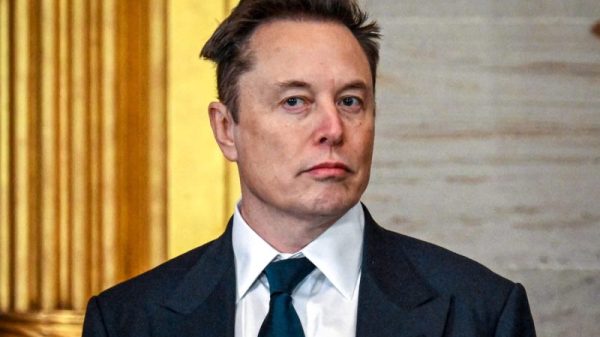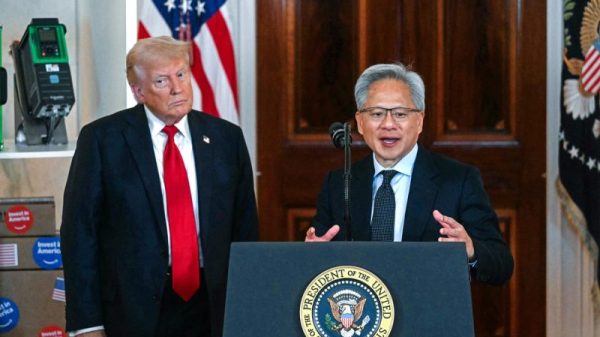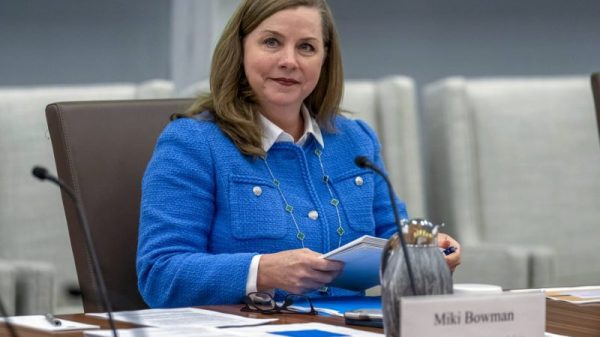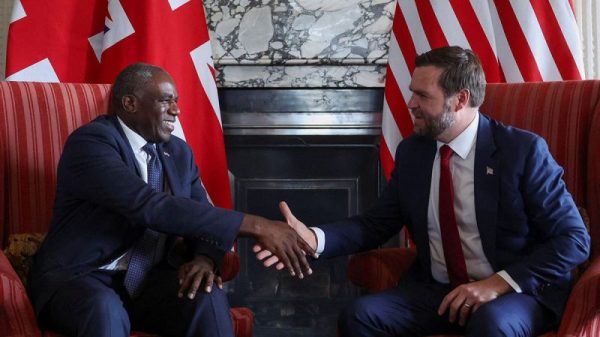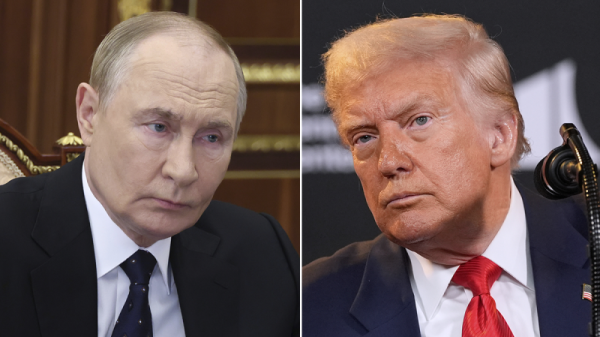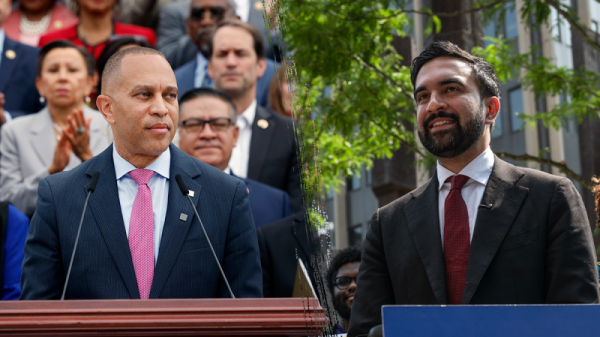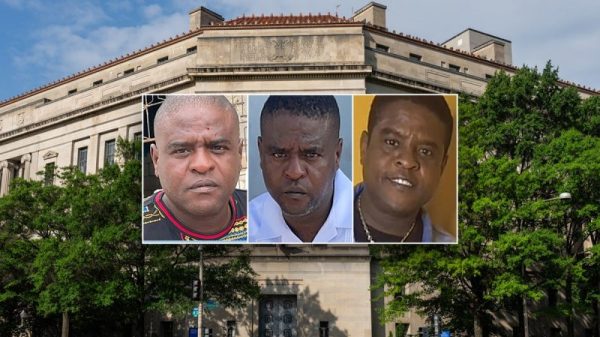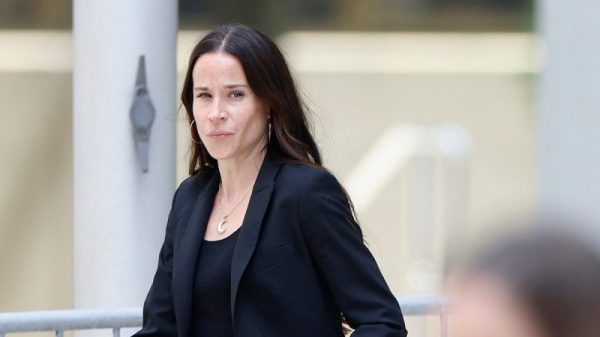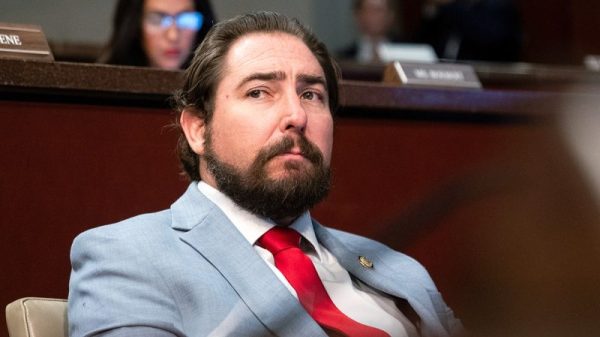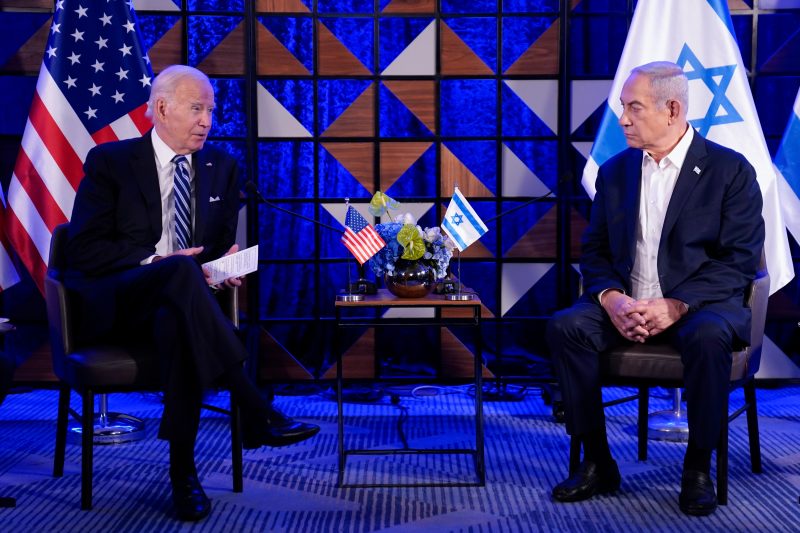President Biden’s trip to tout “Bidenomics” in the district of firebrand Rep. Lauren Boebert (R-Colo.) was less than three hours away when the White House announced the visit was being scuttled. Instead, Biden spent the afternoon of Oct. 16 strategizing urgently with leaders of Iraq, Egypt and Germany about how to contain the Israel-Gaza war.
Two days later, Biden had planned to host a festive Hispanic Heritage Month event in the Rose Garden with first lady Jill Biden, part of an effort to reach out to the growing and politically crucial Hispanic community. Instead, he was on a whirlwind trip to Tel Aviv, meeting with Israeli Prime Minister Benjamin Netanyahu and Israel’s war cabinet.
Biden did push ahead with a White House event showcasing his battle against “junk fees” in the days after Hamas’s attack — but he opened by talking about the killings and “the painful memories and scars left by a millennia of antisemitism.” Those comments got more attention in many quarters than the economic message.
More than three weeks after the Oct. 7 attack and Israel’s ensuing assault in Gaza, Biden’s agenda has been in many ways engulfed by the crisis. He has spoken to Netanyahu at least 10 times, conferred with other world leaders including Pope Francis at least 10 times, made roughly half a dozen public remarks on the violence and delivered a rare prime-time address from the Oval Office.
The president also took a lightning trip to the region, met with a bipartisan congressional delegation that had just returned from Israel, spoke remotely with the families of 14 unaccounted-for Americans and spent countless hours meeting with his advisers about how to handle the crisis.
The White House is now trying to restore a semblance of normalcy to Biden’s schedule; he visits Minnesota on Wednesday to discuss rural issues and may travel more later in the week. But with the Israel-Gaza war intensifying, Netanyahu warning of a long conflict and diplomats worrying about a regionwide escalation, the president may struggle for some time to deliver his domestic message without distraction.
White House press secretary Karine Jean-Pierre bristled at the notion that Biden could not focus on various priorities simultaneously. “You know the president is able to do multiple things at once, right? As president, he has to do multiple things at once,” she said earlier this month. “And that’s what you saw him do this weekend.”
Jean-Pierre was responding to a reporter’s question about Biden’s decision to proceed with an interview by special counsel Robert K. Hur, who is investigating the discovery of classified documents at Biden’s private office and home, in the days after Hamas’s attack.
But Tevi Troy, who served as a senior aide to President George W. Bush, said the reality is that a president can only focus on so many issues at once, given the finite time on his schedule. “Saying that the president is completely focused still on the domestic issues, as well as the foreign policy crisis — it’s just hard to pull off,” Troy said.
Still, he added, Biden is right to devote significant time to the Middle East violence. “Foreign policies can have much greater world-historical impact,” Troy said. “And if you mess up something like the Cuban missile crisis, you could have nuclear war on your hands.”
All presidents see their schedules upended by foreign crises on occasion. Donald Trump confronted Syria’s use of chemical weapons. Barack Obama grappled with the eruption of mass protests in Iran and Tehran’s ensuing crackdown.
But the Israel-Gaza war — especially coming on top of the Russia-Ukraine conflict — is proving to be an unusually intense and potentially long-lasting episode. Many Americans have close ties with or strong feelings about the region, and eruptions of antisemitism and Islamophobia have painfully brought the crisis home.
That has been reflected in Biden’s words and actions.
He requested $14 billion in aid for Israel after a passionate Oval Office address in which he argued that helping the U.S. ally is a moral and practical imperative. The United States has shifted thousands of soldiers and Marines closer to the region and stationed two aircraft carriers in the area, partly as a precaution in case the war broadens.
The administration also has sought to restrain Israel’s push into Gaza amid criticism from some liberals about the rising death toll and slow pace of humanitarian aid.
As the Israel-Gaza crisis unfolded earlier this month, Republicans were engaged in the messy process of struggling to elect a House speaker, failing several times before finally choosing Rep. Mike Johnson (R-La.). Biden had hoped to highlight the contrast between the Republican chaos and his own productivity, but the GOP’s floundering was partly overshadowed as cable networks divided their time between Congress and the Middle East.
The White House insists that Biden remains highly engaged on domestic priorities. His focus on the Israel-Gaza violence was especially notable in the days after Hamas’s attack, and his schedule for the near future includes more U.S.-centered events.
Biden spoke about artificial intelligence on Monday and about retirement security on Tuesday, for example, and in coming days he is scheduled to host events on jobs in rural communities and economic prosperity in the Western Hemisphere.
But history suggests it can be challenging for a White House in such circumstances to keep a focus on domestic affairs.
Bush struggled to pass domestic bills after the terrorist attacks of Sept. 11, 2001, and Troy said his goals related to health care and Social Security never came to fruition. George H.W. Bush was so focused on the Gulf War that Bill Clinton, his Democratic rival in the 1992 presidential race, hammered him as insufficiently attentive to domestic matters. After the 1941 attack on Pearl Harbor, Franklin D. Roosevelt stopped calling himself “Dr. New Deal” and instead boasted of being “Dr. Win the War.”
The Israel-Gaza war also has affected Vice President Harris’s schedule. The conflict consumed her morning, for example, on Oct. 11 before a previously planned visit to the College of Charleston. Initially scheduled to depart for South Carolina at 10:25 a.m., Harris boarded Air Force 2 more than 90 minutes late.
The White House announced shortly after takeoff that Biden and Harris had spoken with Netanyahu and met with their national security team that morning and that the American leaders conveyed their ongoing support for Israel in that call.
On the airport tarmac in Charleston, Harris gave her first public statement about the conflict. “The president and I take very seriously our commitment to Israel and the people of Israel — and to support them and, in particular, to give Israel what it needs to defend itself,” she told reporters.
But at the College of Northern Arizona on Oct. 17, an audience member confronted Harris about the administration’s approach to the crisis.
The student, who described himself as an aspiring educator, compared White House policies on the U.S.-Mexico border with “crimes committed against those in Palestine,” and he blamed Israel for the bombing of a hospital in Gaza. (Hamas and Israel have traded blame for the attack, and American officials say they have “high confidence” that the explosion was not Israel’s doing.)
“Why take away the life of the children in Gaza and at the border, which ultimately takes away the fundamental right of education?” the student asked. Several audience members cheered.
Harris replied that she believes both Israelis and Palestinians deserve peace and self-determination.
“I think it is important to recognize, also, the distinction between a terrorist organization, Hamas, and the Palestinian people and civilians, and they should not be conflated,” she said. “And we must have a response to that in a way that we understand, as humans, that the suffering that is happening is something we must take seriously.”
A few people in the crowd jeered, and one called out, “Stop making bombs!” Another yelled, “Stop talking and do something!”
Harris’s office did not respond to a request for comment.
Protesters also confronted Biden about his decision not to call for a cease-fire, which many liberals fervently demand. As the president spoke about LGBTQ+ rights at a Human Rights Campaign event, an attendee repeatedly chanted, “Let Gaza live, cease-fire now!” Biden told the protester that he couldn’t hear what she was saying.
And Biden at times has sought find a balance by addressing the Middle East at the outset of a speech on an unrelated matter, as he did when addressing junk fees earlier this month.
On Oct. 12, Biden was delivering remarks in Philadelphia about his infrastructure law, but first he took time to pay homage to those killed by Hamas.
“The more we learn about the attack, the more horrifying it becomes,” he said.
Tyler Pager contributed to this report.






